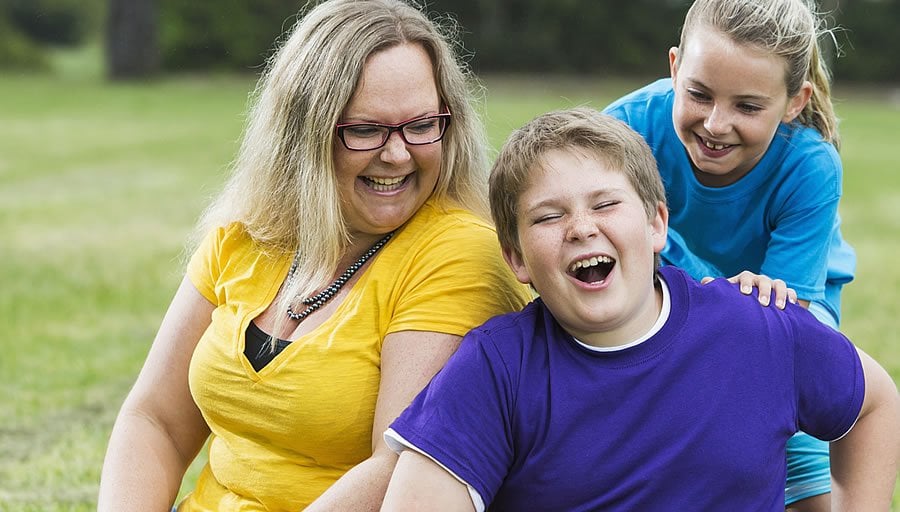Overweight Kids Need Family-Based Programs
Overweight children need more than a visit or two to the doctor to lose weight, asserts new research. What they really require are “family-based behavioral-lifestyle intervention programs,” concluded the study’s lead author Teresa Quattrin, M.D., of Women’s and Children’s Hospital of Buffalo, in New York.

Dr. Quattrin and colleagues reviewed the medical histories of 587 obese children who visited a pediatric endocrinologist at least twice over a nineteen year period. The study, reported in Pediatrics, found that only five kids – less than 1% – lost enough weight so that they no longer met the criteria for being obese.1
For both short- and long-term success, concluded the scientists, it is essential to teach the entire family good eating and exercise habits because obesity itself is often a family concern. Among the 587 children, half of their mothers and nearly 60% of their fathers were obese. Asking children to change their eating habits without asking their parents is very hard on the kids – and doomed for failure.
Family lifestyle retraining would also help curtail these youths’ “high risk for developing type 2 diabetes and coronary heart disease,” the authors wrote. Of the 311 children who had their cholesterol tested, 56% showed high cholesterol levels. Of the 94 who had insulin testing, a shocking 79% had high levels of insulin, a sign they were at risk of diabetes.
The good news: A growing body of research indicates that family lifestyle-retraining programs yield remarkable results.
Pritikin Family Health Camp
At the American Heart Association’s national conference on Cardiovascular Disease Epidemiology and Prevention in San Francisco, UCLA scientists reported the results achieved by children in the two-week Pritikin Family Program, held every summer at the Pritikin Longevity Center in Florida:
- LDL “bad” cholesterol levels fell on average 34%.
- Triglycerides (blood fats) fell 42%.
- Weight loss averaged 10 pounds for kids needing to lose weight.
- Insulin levels decreased 32%.
- Systolic blood pressure fell from an average 122 to 114, which means the children went from pre-hypertension levels to normal levels.
States Dr. James Barnard, UCLA researcher who presented the above results at the AHA conference: “Many scientists came up to me afterwards and said this new data was the most important research presented at the conference. It shows that programs like Pritikin could help prevent children from diseases like type 2 diabetes, which kids nationwide are now suffering from in record numbers.”
The Pritikin Family Program attracts families from all over the world. This summer’s program begins in July. For both kids and parents, Pritikin’s doctors, dietitians, and exercise physiologists create a fun-filled, camp-like atmosphere. Children ages 8 to 15 play lively noncompetitive fitness games, cook tasty meals and snacks, and attend kid-friendly workshops packed with real eye-openers (“A can of cola has 10 teaspoons of sugar?!”)
In addition to the traditional “adult” Pritikin Program, parents attend workshops to learn strategies for motivating their kids to make healthy choices, including meal planning with kids, handling picky eaters and junk-food lovers, fitting fitness fun into everyday family life, and being a good role model.
“Everyone has a great time, both kids and parents, ” says Director of Nutrition Kimberly Gomer, one of the educators in the Pritikin Family Program. “And everyone leaves with impressive results and an education – a new way of life – that is priceless.”